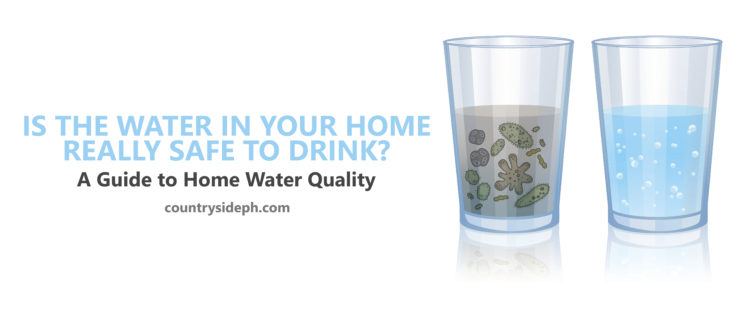Is the Water in Your Home Safe to Drink?
With the recent revelations about lead contamination of the water supply in Flint, Michigan, people everywhere are concerned about the safety of their own drinking water. The U.S. Environmental Protection Agency says more than 90 percent of the country’s water reserves meet its safety standards, but that is small consolation if you’re one of the unlucky ones consuming water that contains dangerous microbes or chemical pollutants.
The EPA certifies drinking water at its point of origin, but it can’t account for contamination picked up during transit through pipes and faucets. Complicating things further, the government only regulates municipal water sources and does not monitor private and shared wells, which many people in rural areas still rely on for their drinking water.
Testing Your Water for Contamination
Municipal water systems are required to test their water annually for a broad range of contaminants, and you can obtain information about the results for your city’s water on the EPA website.
But this does not rule out possible contamination further down the supply line. The only way to know for sure—with 100 percent certainty—that your water is safe to drink is to have it tested following collection from a faucet in your home. This is mandatory if you get your water from a well and could be an excellent idea even if you don’t.
If you’d like to have your water tested for contaminants you have four options:
- Your local municipal water supplier, which may be willing to perform an on-demand test of your home’s water at no charge.
- A state testing agency certified by the EPA.
- A private, nationwide testing service like Underwriters Laboratories. Prices for private testing range from about $30 for a simple mercury screen to $500 for a comprehensive test that covers more than 90 possible forms of contamination.
- A home testing kit, which will cost you about $30 but will only screen for a few common contaminants, including lead, arsenic, pesticides and bacteria.
When you get your water from a private well it is important to test for nitrates, intestinal (coliform) bacteria, dissolved salts and pH balance at least once a year. Regular testing for chloride, sulfate, manganese, iron and water hardness is also required, although once every three years is usually good enough for this group of contaminants. Other pollutants worth testing for, at least on occasion, include lead, arsenic, copper, radon and pesticides, which can cause problems if your pipes are old or if your home is located near a potential source.
Let Countryside Plumbing & Heating Inc. Help You Restore Your Water Quality
Contamination caused by aging pipes or faucets is a plumbing problem the experts at Countryside Plumbing & Heating can help you resolve. We can also supply you with state-of-the-art water filters and treatment systems that will sanitize your home’s water and make it perfectly safe for drinking.
If you live in St. Croix, southern Polk or northern Pierce counties please contact us about your water quality concerns today, and we will help you solve them, quickly, efficiently and affordably.
Follow the Countryside Plumbing & Heating blog for money-saving and health-preserving information about heating, cooling, plumbing and indoor air quality management.




